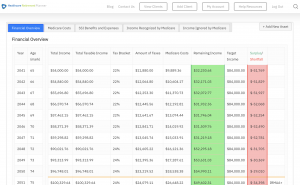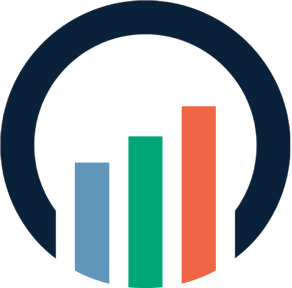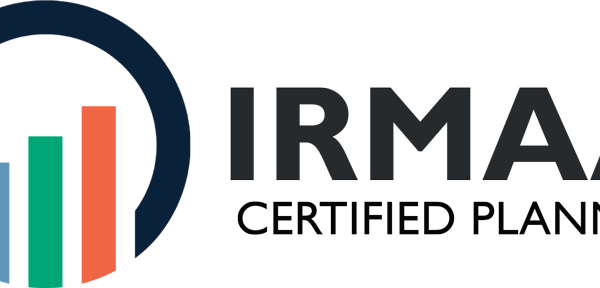Last year, I did something that might raise a few eyebrows—I dove headfirst into the complex world of CFP CE. Now, I know what you’re thinking: isn’t continuing education just a bunch of dry lectures and tedious tests? Turns out, it’s way more than that.
Picture this: It’s like hitting the refresh button on your career as a financial planner every couple of years. Not only does CFP CE keep your skills sharp, but it also ensures you’re up to speed with all those rapid changes in finance laws and practices.
This piece is going to walk you through everything from ethics courses crucial for maintaining integrity in your practice to smart ways dual credit classes can cover more ground faster. And let me tell ya—getting ahead in this game means staying informed.
Understanding CFP CE Requirements and Their Importance
Becoming a Certified Financial Planner (CFP) is like earning your black belt in financial planning. But just as martial artists must keep their skills sharp, so too must financial planners through Continuing Education (CE). Let’s peel back the layers of this educational onion.
What Constitutes CFP CE?
To maintain that coveted certified status, you need to bag some serious education credits—think 30 hours every two years. Now these aren’t just any old courses; they’ve got to be on the CFP Board‘s VIP list. This isn’t about ticking boxes but staying razor-sharp in an industry that never stands still.
The menu of options is vast: estate planning, retirement savings strategies—you name it. If it can make you a finance ninja, it counts. And yes, there are mandatory appetizers too—the ethics course—a feast for thought on keeping things above board.
The Value of CE Credits for Financial Planners
Earning those shiny CE credits isn’t busywork; think of them as career rocket fuel. They’re not just fulfilling cfp ce requirements—they’re opening doors and windows alike to new professional vistas. The financial world spins fast; missing out on fresh knowledge could mean watching opportunities zip by at warp speed.
Dive into topics like investment products or anti-money laundering tactics and watch your expertise grow exponentially—it’s about more than meeting continuing education credit minimums—it’s adding value that clients will notice…and appreciate.
The Role of IRMAA Certified Planner Designation in CFP CE
Acing Medicare policies with an IRMAA certification? That’s hitting two birds with one stone because now we’re talking specialization plus education credit fulfillment. With folks living longer lives these days, understanding Medicare becomes crucial—and guess what? It counts towards those pesky ongoing certification needs.
Key Takeaway:
Becoming a CFP is like getting your black belt in finance, but you’ve got to keep training. Every two years, snag 30 hours of top-notch CE credits approved by the CFP Board. It’s not just about keeping that title—it’s about staying sharp and opening doors with up-to-date knowledge.
Dive into hot topics from estate planning to anti-money laundering—these aren’t just credits; they’re career boosters that clients will notice. And if you add an IRMAA certification into the mix? You’re nailing specialization while ticking off those education requirements as folks gear up for longer lives.
The Role of IRMAA Certified Planner Designation in CFP CE
For those financial planners looking to sharpen their Medicare policy expertise and fulfill their Continuing Education (CE) requirements, the IRMAA Certified Planner designation stands out. It’s like hitting two birds with one stone; you get specialized knowledge on Income-Related Monthly Adjustment Amounts (IRMAA), plus it counts towards your CFP CE credits.
Earning this designation means you’re more than just a certified financial planner—you’re someone who can confidently navigate the complex waters of Medicare surcharges. This isn’t just another plaque design to hang on your wall; it represents an investment in yourself that helps meet requirements for maintaining your certification while providing invaluable advice to clients approaching retirement age.
By focusing on certification education specifically tailored for understanding IRMAA, planners can give better guidance around health care costs in retirement—a topic hot enough to cook eggs on. And let’s face it: we all want our golden years sunny side up without the fear of unexpected expenses boiling over.
Certification Requirements
To sit at this elite table, there are hoops to jump through—because nothing worth having comes easy, right? You need to satisfy specific education courses approved by none other than the CFP Board. The process is rigorous but think about how much smoother client conversations will go when ‘Medicare’ stops being a buzzkill word at meetings.
Becoming an IRMAA Certified Planner shows dedication not only toward professional development but also towards helping clients protect their hard-earned savings from potential Medicare snags. So while fulfilling these educational pieces may feel daunting, remember that every completed course is a step closer toward becoming that hero who saves the day—and potentially some significant assets too.
Meeting Requirements with Ease
You’ll be pleased as punch knowing that diving into these specialty courses does more than prepare you for possible questions—it positions you as an expert among peers and bolsters trust with clients. Because after all, they don’t call us ‘financial planners’ for nothing—we plan ahead.
Achieving this distinctive badge doesn’t mean putting everything else on hold either. Thanks partly due to online platforms revolutionizing learning methods; flexibility is now part of continuing education’s DNA allowing busy bees like us actually have lives outside spreadsheets and seminars.
This dual benefit—not just keeping up with required CE credits but mastering them—is what makes investing time into obtaining your IRMAA Certification such a smart move. Now roll up those sleeves because expanding horizons never looked so good—or was so practical.
Key Takeaway:
Become an IRMAA Certified Planner to boost your Medicare expertise and earn CFP CE credits. It’s a smart investment that sets you apart, beefs up your professional game, and equips you with the skills to save clients from retirement health care cost surprises.
Earning this designation isn’t just about ticking boxes; it’s a commitment to excellence that translates into real-world benefits for both planners and their clients. Plus, online courses mean you can juggle learning with living—no need to pause life while leveling up.
Comprehensive Guide to Meeting Ongoing Certification Requirements
If you’re a certified financial planner, keeping up with ongoing certification demands is like staying in shape—it’s continuous and necessary. The CFP Board sets the pace, ensuring that your knowledge doesn’t just meet but exceeds client expectations.
Navigating the Initial Education Requirement
To complete the CFP Board’s initial education requirement feels much like building a strong foundation for an impressive skyscraper. You need this robust base of knowledge before moving on to more complex concepts. It involves comprehensive coursework in key areas such as estate planning and insurance continuing education—essential tools for every savvy planner’s belt.
The process begins by tackling subjects that are at the heart of personal finance; it’s not unlike learning how to read a map before setting off on a journey. By mastering these fundamentals, planners set themselves up for success from day one.
Keeping Up with Ongoing Certification Demands
Maintaining your status as a certified professional isn’t just about ticking boxes; it’s about growing and adapting alongside an ever-changing industry. Regular CE activities offer you fresh insights into investment products or even evolving practice standards which could be pivotal in guiding clients through their financial journeys.
With ongoing certification requirements always looming on the horizon, finding courses approved by recognized authorities can feel like searching for water in a desert—but they are out there. Platforms serving multiple professions often provide streamlined solutions designed specifically to help busy professionals reach their career goals without missing a beat.
CFP Board, WebCE, and others deliver exceptional professional development opportunities online, making satisfying requirements convenient no matter where life takes you.
Achieving excellence as an investment professional means never standing still. Whether facing disciplinary actions or striving towards higher levels of accomplishment within securities industry norms—your dedication shows both commitment and capability beyond question when armed with cutting-edge expertise gained through meticulous continuing education credit work.
Key Takeaway:
Staying on top of CFP certification is a non-stop hustle. Think of it as gym time for your financial planning muscles, making sure you’re always ready to outperform and wow your clients.
Starting with the basics in finance is like learning to read a map before hitting the road. It’s about setting yourself up to navigate more complex challenges ahead.
Growth in this field means staying sharp and current. CE courses are your lifeline for keeping skills fresh and guiding clients confidently through their money matters.
Digging into approved CE activities can seem tough but think oasis, not mirage. Online platforms have got your back, offering convenient ways to stay qualified wherever you go.
Your drive towards excellence shows commitment that speaks volumes—keeping pace with industry shifts through ongoing education proves you’ve got what it takes.
Ethics CE and Its Critical Role in CFP Certification Maintenance
Every Certified Financial Planner knows that with great power comes great responsibility. Staying on the straight and narrow isn’t just about avoiding disciplinary actions; it’s about cementing trust as a financial professional. That’s where ethics continuing education (CE) swoops in, cape flapping heroically in the wind of regulatory changes.
In the world of CFP certification, staying sharp isn’t optional—it’s mandatory to keep your credentials polished. Ethics CE is like spinach for Popeye: It keeps you strong against the temptations of wrongdoing and aligns you with practice standards that would make even Superman take notes.
Think about it—when was the last time an outdated superhero saved the day? Never, right? Just as heroes evolve, so do regulations within financial planning. Ethics courses are not merely a hoop to jump through but rather serve as a beacon guiding CFP professionals toward exemplary service while navigating tricky waters like variable annuities or anti-money laundering protocols.
What Constitutes CFP CE?
The recipe for meeting these ongoing certification requirements includes more than just understanding investment products or estate planning; it requires mastering ethical decision-making too. Remember those old-school public service announcements where they said knowing is half the battle? Well, they were onto something because when we’re talking ethics ce credits—the knowledge gained becomes your superpower against potential missteps.
Certified financial planners often wonder how best to accumulate these critical education credits without disrupting their busy lives saving fiscal worlds one portfolio at a time—a valid concern indeed. But here’s some good news: there are options such as multi-credit courses that can simultaneously satisfy various educational needs without doubling your study hours faster than The Flash running laps around Central City.
The Value of CE Credits for Financial Planners
Achieving success doesn’t end after passing exams or receiving shiny plaques designating one’s expertise in personal finance realms; no sirree Bob. Like any savvy investment professional looking ahead, collecting those golden nuggets known as continuing education credit keeps careers thriving long term—and let me tell ya’, thriving feels way better than just surviving.
Fulfilling this education requirement consistently ensures registered representatives remain fluent in ever-evolving industry languages spoken across securities landscapes from Wall Street to Main Street—and who wouldn’t want fluency boasting rights?
Key Takeaway:
Ethics CE is the superhero cape for CFP pros, keeping you on point and trusted. It’s not just about ticking boxes; it’s your power-up against missteps and a guide to top-notch service.
Need those ethics credits but strapped for time? Look into multi-credit courses that cover more ground without slowing you down—keeping your career in super speed.
Leveraging Dual Credit Courses for Efficient Learning
Time is money, especially in the financial industry where staying ahead of the curve isn’t just nice—it’s necessary. That’s why dual credit courses are like hitting two birds with one stone; they offer simultaneous accreditation across different certifications or licenses.
Dual credit courses make it possible to meet education requirements without doubling your study hours. Imagine completing a course that counts toward both your CFP CE and another professional development certification at once. Now, that’s smart learning.
In these multi-credit classes, every minute you spend on coursework propels you further along multiple paths—whether those lead to becoming an IRMAA Certified Planner or maintaining other vital credentials within the securities industry.
The Role of Multi-Credit Courses in Professional Development
If we talk numbers, enrolling in multi-credit options can be a game-changer. By fulfilling more than one requirement simultaneously, professionals save not only precious time but also hard-earned cash—an efficiency boost that echoes throughout their career goals.
Becoming an IRMAA Certified Planner through such courses? You’re not just checking off boxes for continuing education credits; you’re layering expertise onto your financial planning prowess. It’s about stacking up skills as efficiently as bricks in a wall.
Simplifying Continuing Education Credits Management
Managing ongoing certification demands can feel like juggling flaming torches while blindfolded—but it doesn’t have to be this way. With dual credit offerings from platforms like WebCE, keeping track of what’s due becomes much less daunting.
This approach respects your time and intelligence by meshing together needs: say goodbye to redundant sessions covering familiar territory and hello to powerful learning experiences designed for seasoned pros who’ve been around the block (or trading floor).
Navigating Licensing Requirements Seamlessly
Let’s face it: regulations change faster than fashion trends—and anyone who has ever dealt with FINRA securities knows this all too well. This makes having access to current information critical for investment professionals aiming to stay compliant without disrupting their workflow significantly.
To sum it up, leveraging dual credit opportunities is akin to upgrading from a single-engine plane to jet propulsion when navigating the skies of professional advancement and regulatory compliance—a choice that no savvy financial planner would second-guess because let’s be real – if there’s an easier path lined with gold stars (credits), why wouldn’t we take it?
Key Takeaway:
Save time and money with dual credit courses that count toward multiple certifications, including CFP CE. It’s smart learning that layers your expertise without doubling the effort.
Dual credit courses turn a single study session into progress on several fronts—think smarter, not harder—and keep you sharp in an ever-changing industry.
Benefits of Continuing Education for Financial Professionals’ Career Growth
Certified Financial Planners (CFPs) know that the landscape of financial planning never stands still. Staying on top means embracing professional development and setting ambitious career goals. And what’s a better way to do this than through continuing education? It’s like hitting two birds with one stone—you meet compliance needs while turbocharging your growth in finance.
Gaining additional expertise, such as the IRMAA Certified Planner designation, not only fulfills CFP CE requirements but also deepens your knowledge in Medicare policies—making you stand out in an ocean of professionals. Imagine adding another layer to your planner cape; it’s about being ready when life throws a curveball at your clients’ finances during their golden years.
The Value of CE Credits for Financial Planners
Earning CE credits isn’t just ticking off boxes; it’s more like upgrading your armor in the battle against financial ignorance. With each credit, you’re sharpening skills and staying ahead of trends—an absolute must if you want to keep calling yourself certified without crossing fingers behind your back. The CFP Board doesn’t just hand these titles out; they make sure their knights are well-prepared for any fiscal dragon they might face.
Moving up means learning more—not just about estate planning or investment products but diving into new territories altogether, such as anti-money laundering or variable annuities practices that serve multiple professions within the industry.
Leveraging Dual Credit Courses for Efficient Learning
Dual credit courses are like getting a BOGO deal on education—they offer simultaneous accreditation across different certifications or licenses within the securities industry—a real game-changer saving time and cash. Just imagine fulfilling multiple licensing demands at once—it’s akin to cooking dinner while vacuuming crumbs with those robot vacuums everyone raves about.
WebCE, a leader delivering exceptional professional development solutions online ensures convenience meets engagement—and let’s be honest—who wouldn’t love getting things done from their couch?
- Saves time by meeting various certification needs all at once
- Frees up resources so financial planners can invest elsewhere—like maybe some actual investing?
- Takes efficiency levels through the roof because who has time to waste?
Key Takeaway:
Keep climbing the career ladder with continuing education—meet compliance and boost your finance game all in one go.
Earn those CE credits to stay sharp, relevant, and truly certified; it’s not just about ticking boxes—it’s your professional edge.
Use dual credit courses for a smart time-saving strategy that ticks off multiple certification needs while you chill on your couch.
Exploring Additional Continuing Education Requirements Beyond Basic CFP Standards
Certified Financial Planners are like Swiss Army knives, versatile and ready for any financial challenge. But even the most multifaceted tools need sharpening. That’s where continuing education (CE) requirements come into play, pushing you beyond basic CFP standards.
The Ever-Evolving Landscape of Financial Planning
The world of finance waits for no one, with new products and regulations popping up faster than a jack-in-the-box. To stay on top of this whirlwind industry, CE is your anchor in a sea of change. It isn’t just about ticking boxes; it’s about expanding your toolkit to serve clients better and reach those lofty career goals.
Beyond the typical courses approved by the planner board lie additional opportunities that can propel your professional development forward—think estate planning or anti-money laundering specifics—and they all count towards satisfying those ongoing certification demands.
IRMAA: The Golden Nugget in Your CE Arsenal
If Medicare were an ocean liner, IRMAA would be its navigator through choppy waters—and mastering it could set you apart as an investment professional who really knows their stuff. Diving into IRMAA Certified Planner designation not only meets requirements but gives you specialized knowledge to guide clients through Medicare surcharges like a pro.
This dual credit wonder doesn’t just satisfy part of your annual education requirement—it also makes sure you’re equipped to deal with questions frequently asked by clients approaching retirement age. Think how impressive “I’m also certified in navigating Medicare policies” will sound during client meetings.
Dual Credit Courses: A Smart Investment In Your Time
Let’s talk efficiency because time is money—especially yours. Dual credit courses work double duty allowing you to knock out several birds with one stone when it comes fulfilling multiple professions’ credits at once such as IAR CE or insurance continuing education alongside CFP CE credits. WebCE, our ally in delivering exceptional online learning experiences, provides these smart multi-credit options so that financial professionals can streamline their educational journey without skimping on quality—or convenience.
Key Takeaway:
Stay sharp as a financial pro by diving into CE beyond the basics—think estate planning and anti-money laundering to really amp up your expertise.
Get ahead with IRMAA certification—it’s not just about meeting CE requirements, it makes you a Medicare guru at client meetings.
Dual credit courses are your time-saving hack; they let you hit multiple education goals in one go, so you can focus on what counts—your clients.
How Online Platforms Revolutionize Delivery of CFP Continuing Education
Gone are the days when Certified Financial Planners had to shuffle through conference halls or sit in stuffy classrooms for their continuing education. Now, with online platforms stepping up, like a superhero swooping into save time and sanity, learning has taken a sharp turn towards convenience and efficiency.
The Unmatched Course Completion Reporting of WebCE
Say goodbye to lost paperwork and hello to seamless digital tracking. With WebCE, an established leader in online cfp board ce, financial planners can now breeze through course completions without breaking a sweat. The platform’s reporting system is so smooth it makes silk look rough. And let’s not forget that this ease comes with over 25 years of experience delivering online education simply yet effectively.
Imagine clicking your way through CE requirements while sipping coffee at your desk. That’s right; those five-star user ratings didn’t come from thin air – they’re earned by making life easier for busy professionals who need to keep up with the fast-paced financial world.
Leaders in Online CFP Board CE: A Beacon for Busy Bees
If you’ve ever felt like there aren’t enough hours in the day, these leaders have heard your silent cries for help. They understand that as investment professionals juggle client meetings and market analyses, sitting down for traditional classes isn’t always feasible. So they bring the classroom to you – wherever you might be.
Dual credit courses serve as two-for-one specials on your professional development journey — talk about hitting two birds with one stone. You could be ticking off credits across various certifications faster than you can say “efficient learning.”
Cutting-Edge Customer Support Makes All The Difference
You know how frustrating it is when technology decides not to cooperate? Well, fear no more because these platforms come armed with world-class customer support teams ready to tackle any hiccup along the way—ensuring that technical glitches don’t stand between you and your career goals.
In short, reviews tell us loud and clear: if there’s a smoother path toward fulfilling ongoing certification requirements or just expanding personal finance knowledge bases – this is surely it.
Key Takeaway:
Online platforms are changing the game for CFP CE with convenience and seamless tracking. Think sipping coffee while earning credits from anywhere, any time.
WebCE leads the charge with easy course completion reporting—imagine never losing another piece of paperwork.
Bustling financial pros can now nail dual credits in one go, making professional growth a breeze even on tight schedules.
Tech troubles? No sweat. Stellar customer support has got your back, keeping your career path hurdle-free.
Conclusion
Wrapping up, cfp ce isn’t just a checkbox on your professional to-do list. It’s the fuel for your career engine, keeping you in top gear amidst financial industry shifts.
Dive deep into those ethics courses; they’re not just mandatory hoops but compasses guiding your integrity. And remember how dual credit classes can streamline learning? That’s smart strategizing for any busy planner looking to optimize time.
And let’s not forget IRMAA Certified Planner designation—talk about hitting two birds with one stone! Knowledge of Medicare policies plus CE credits? Yes, please!
Your takeaway? Keep learning, keep growing. The right cfp ce approach can be a game-changer for financial professionals aiming high.
Table of Contents:
- Understanding CFP CE Requirements and Their Importance
- The Role of IRMAA Certified Planner Designation in CFP CE
- Comprehensive Guide to Meeting Ongoing Certification Requirements
- Ethics CE and Its Critical Role in CFP Certification Maintenance
- Leveraging Dual Credit Courses for Efficient Learning
- Benefits of Continuing Education for Financial Professionals’ Career Growth
- Exploring Additional Continuing Education Requirements Beyond Basic CFP Standards
- How Online Platforms Revolutionize Delivery of CFP Continuing Education
- Conclusion
Streamlining the Medicare Surcharge Calculation Process.
Our Healthcare Retirement Planner software is designed to streamline the retirement planning process for financial professionals. By providing an efficient way to calculate IRMAA costs, our tool helps you save time and focus on other aspects of your clients’ retirement plans.
- Faster calculations: Our software quickly calculates IRMAA costs based on your client’s income and tax filing status, eliminating manual calculations and potential errors.
- User-friendly interface: The intuitive design of our platform makes it easy for financial professionals to input data and generate results with minimal effort.
- Data integration: Seamlessly integrate our calculator into your existing financial planning tools or CRM systems for a more streamlined workflow.
- Easy to Understand Reports: Export reports to easily share with your clients
- Tax and Surcharge Modeling: see how different types of income affects both taxes and your surcharges.
In addition to simplifying the calculation process, using our Healthcare Retirement Planner can also help improve communication between you and your clients. With clear visuals that illustrate how IRMAA costs impact their overall retirement plan, you can effectively convey complex information in an easily digestible format. This enables clients to make informed decisions about their healthcare expenses during retirement while ensuring they are prepared for any potential changes in Medicare premiums due to income fluctuations. To learn more about how our software can benefit both you as a financial professional and your clients’ retirement planning experience, visit the features page. Streamlining retirement planning processes can help financial professionals save time and resources, allowing them to focus on other areas of their clients’ needs. Automated calculation of IRMAA costs is the next step in streamlining this process even further.






